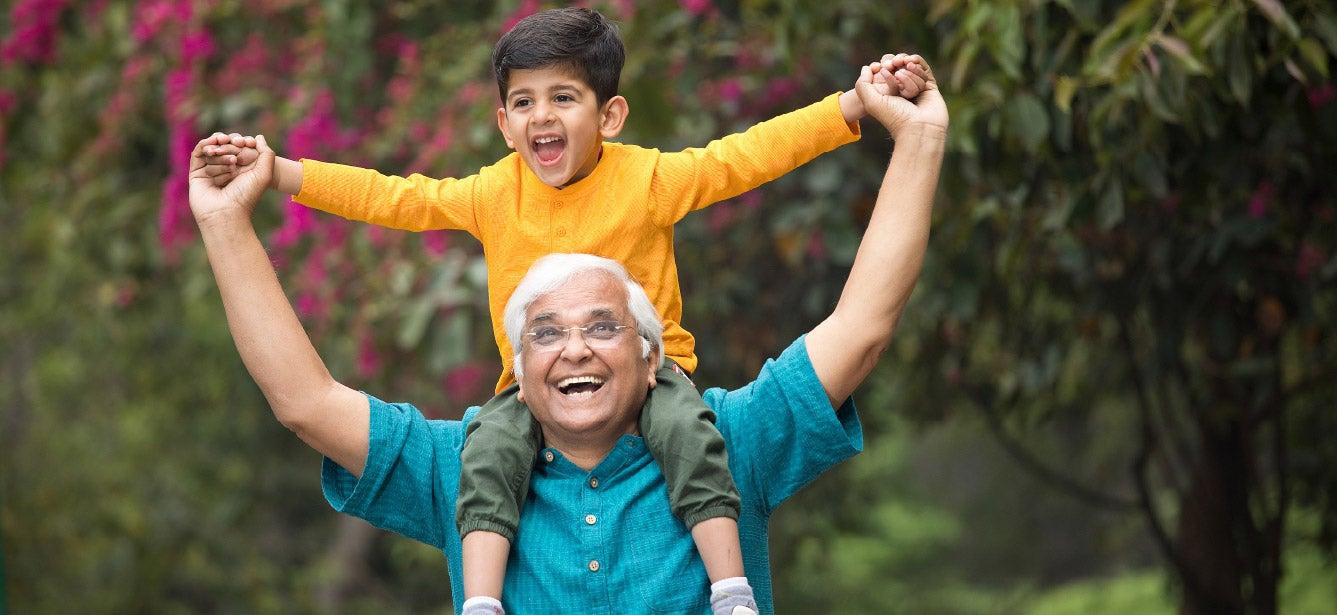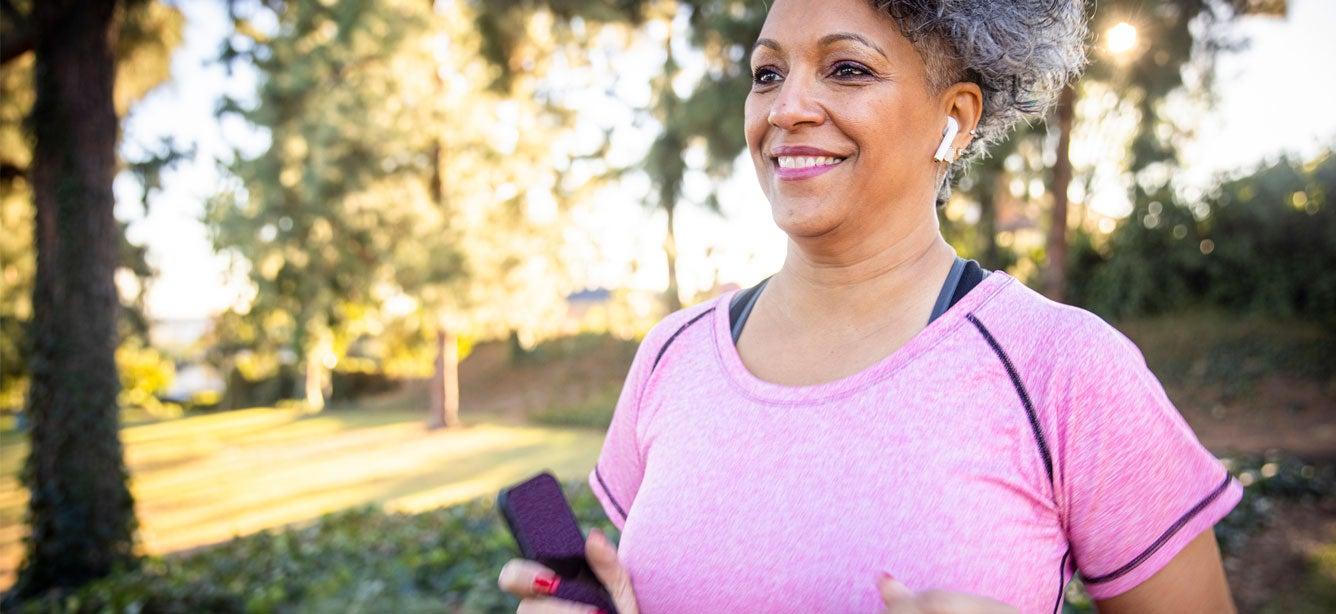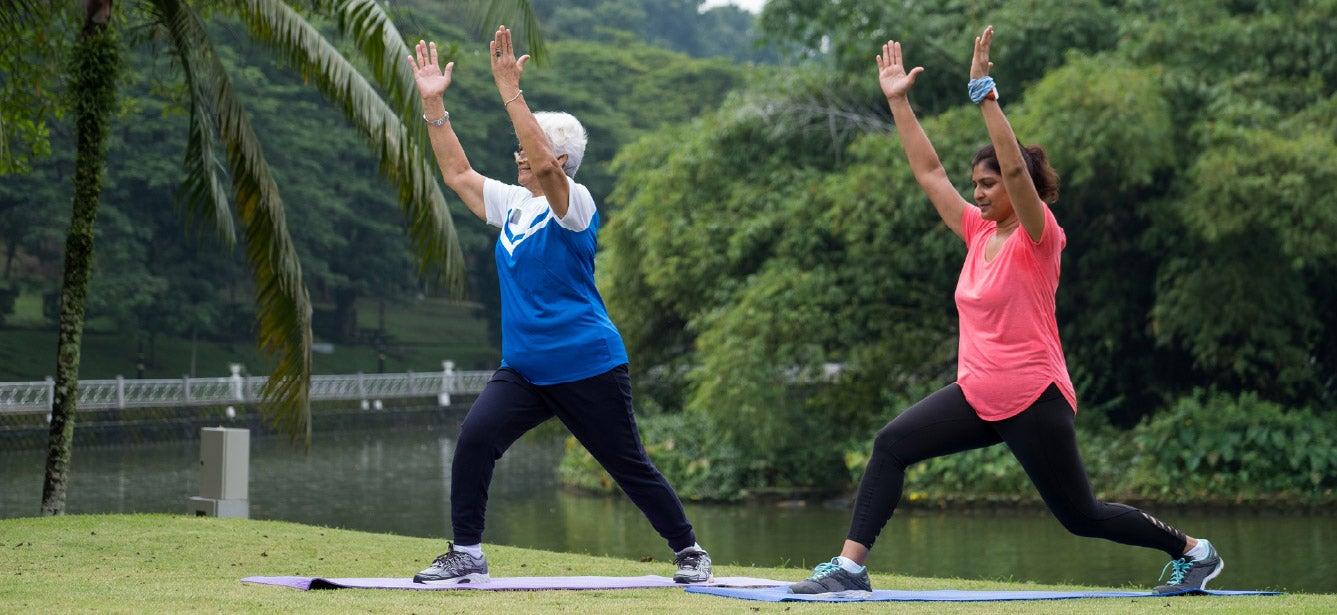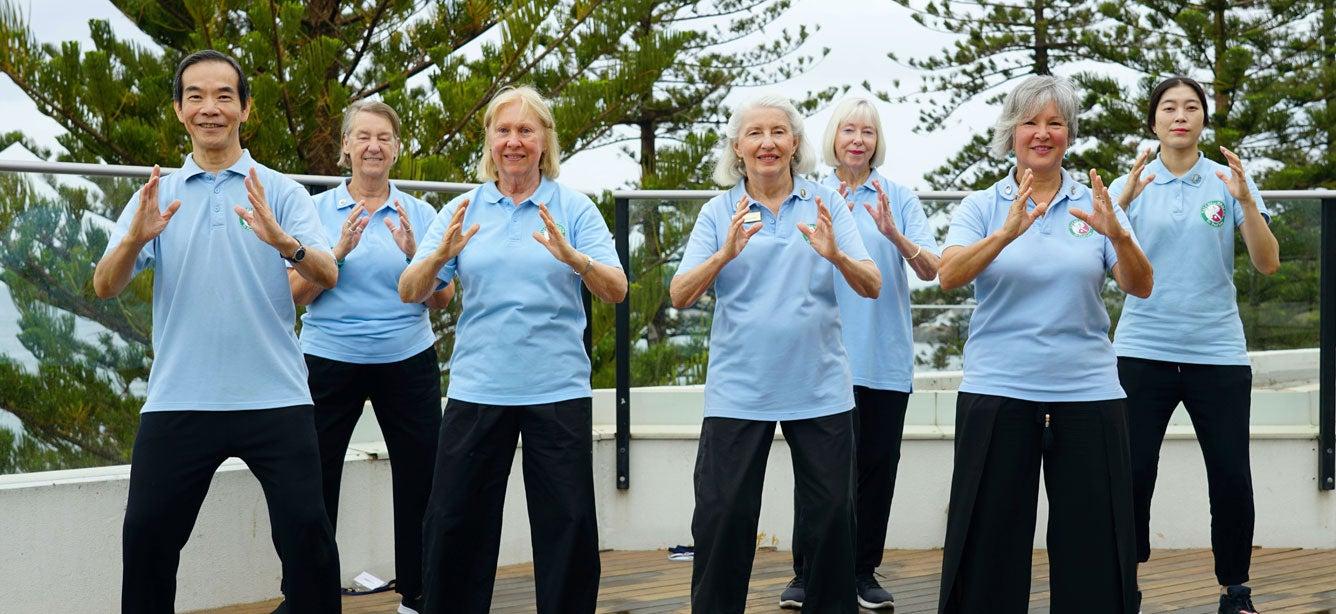
Related Topics
When I started teaching tai chi 40 years ago, my family physician colleagues thought I was weird. Now they call me the “tai chi doctor” and send me lots of participants, mostly older adults. Tai chi attracts myths, with many thinking it is complex, difficult to learn, mysterious, and beautiful. Tai chi can be all that, but it can also be simple, easy to learn, and of course still beautiful.
What is tai chi?
Tai chi is an art and exercise from ancient China, nowadays being used by most as an enjoyable exercise for health. It appears slow and effortless, like tranquil water in a river. Underneath the gentle flow, there is a powerful energy for healing and wellness. It is created based on the laws of nature and Chinese traditional medicine. There are many styles and forms of tai chi that can appear quite different from each other, but almost all traditional tai chi sets are complex.
Tai chi is often modernized for health improvement by using modern medical knowledge. All tai chi forms follow a set of essential principles that are key for its many health benefits. As long as these principles are incorporated in any form of tai chi, the health benefits will come. Modernized tai chi applies these essential principles in shorter and easier forms of tai chi, then uses medical studies to prove their efficacy.
Over 500 published medical studies have shown tai chi improves many aspects of health. Almost all of these studies are based on modernized tai chi.
How does tai chi work?
Older adults need to keep both their bodies and minds active to stay well and become healthier. Twenty years ago, I led a team of medical and tai chi experts to develop the Tai Chi for Arthritis and Fall Prevention Program for older adults.
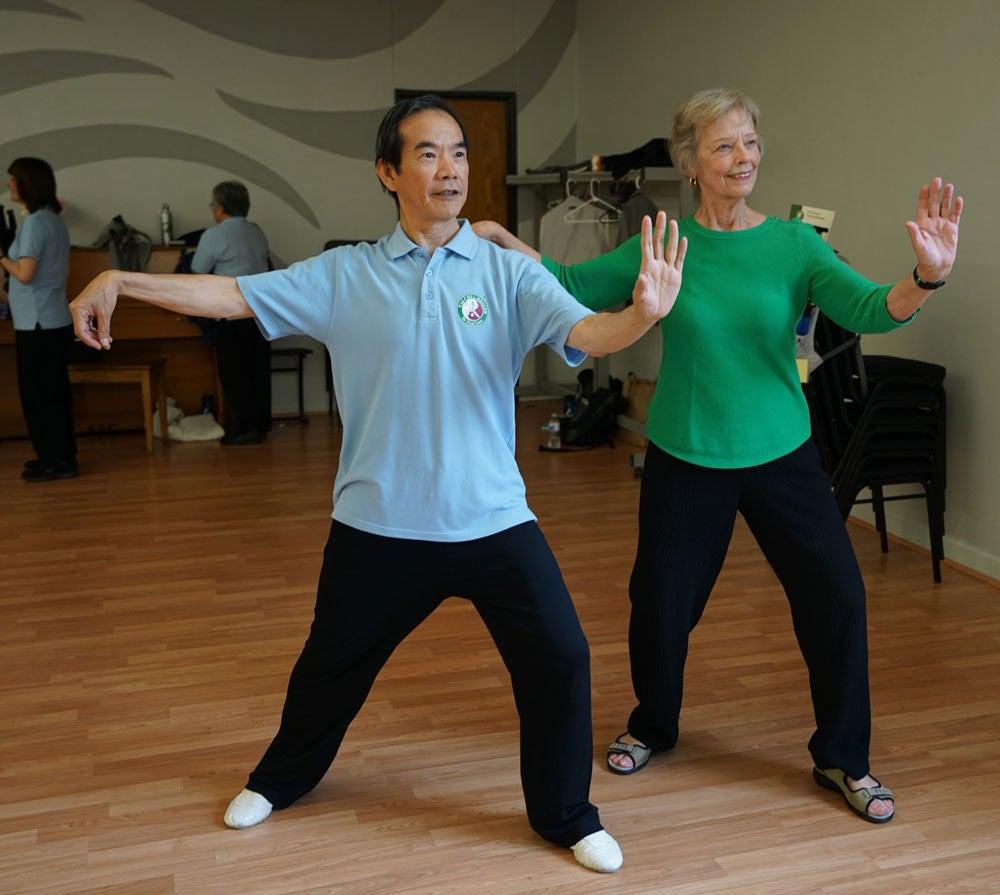
This program works in several ways. It is a gentle and safe exercise which strengthens the muscles and ligaments of the body. Building stronger muscles protects the joints, improves balance, and facilitates your ability to do more activities every day. It also improves flexibility and reduces pain and stiffness.
The program improves balance to prevent falls, relieves overall stress, and improves cardiovascular fitness; three benefits that impact many aspects of health. The program also improves the qi, or life energy. According to traditional Chinese medicine, a stronger qi brings better health.
By now, more than 30 published medical studies have confirmed its many health benefits.
Here are some of the health benefits and what tai chi can do for your body:
- The University of North Carolina conducted the largest study of the Tai Chi for Arthritis and Fall Prevention Program with 354 older adults with arthritis. Participants in the tai chi group gained significant health benefits in eight (8) weeks compared to participants that did not do tai chi. Benefits included pain relief, ability to do more in daily activities, better balance, and feeling better about oneself. The study showed that the program is easy to learn and quick to gain health benefits.1
- The second study was funded by the New South Wales Health Department in Australia. It is the world's largest study on falls prevention for older adults, with 702 participants. After 16 weeks of the Tai Chi for Arthritis and Fall Prevention Program, the tai chi group had reduced their frequency of falls by approximately 67%, and experienced other health benefits.2
Our team realized that in addition to developing an effective and safe program, the teaching method and know-how to take care of people with medical conditions is just as important. That is why the Tai Chi for Health Institute set up a training system to certify safe and effective instructors around the world. All 30 studies on the program have used instructors certified by the Institute. As shown by the above two studies, this program consistently reduces the rate of falls for older adults, relieves pain, and improves quality of life for people with arthritis.
How to start learning tai chi
The best and probably the only way to find out how good tai chi is, is to try it. Be mindful that tai chi is different to most other types of activity in western countries. It is slow and gentle, which is especially beneficial for mindfulness and serenity. Something we all need, but do not get enough of in our busy rushing world. You would need a little time to get used to the rhythm and feel before you gain the full enjoyment. Setting up a regular time to practice is helpful. Tai chi is an activity; watching it does not work. Make a goal to begin tai chi and stick with it for at least three (3) months to allow your body to get used to the movements, begin to see benefits, and develop healthy habits.
Every community offers different physical activity programs. Find your local area agency on aging and ask if they can recommend a location to take tai chi classes.
Once you have some options, spend some time looking into which one would suit you best with the following steps:
- Visit a class to get the feel of the instructor and the class. Did you feel comfortable, were you made welcome? Are participants there of a similar age and condition to you?
- Talk to the instructor. Share your goals and relevant health conditions. Is the instructor interested in your goals? Is the instructor currently certified?
- Ask if programs are offered in-person, online, or both.
- Try out a free first lesson of Tai Chi for Arthritis and Fall Prevention on YouTube to see if it is the right fit for you.
Years of chronic malnutrition in my childhood led me to have arthritis when I was just 13 years old. I’m now 73 and my arthritis is so well controlled that I am stronger and more flexible than most people half of my age.
Sources
1. Journal of Aging and Physical Activity, 2016, A Randomized Controlled Trial. Journal of Aging and Physical Activity.
2. Voukelatos, MA, Cummunig, RG, Lord, SR & Rissel, C (2007). A randomized, controlled trial of tai chi for the prevention of falls: the Central Sydney tai chi trial. Journal of the American Geriatrics Society, 55, 1185-1191.
You can find more information at the Tai Chi for Health Institute website.

